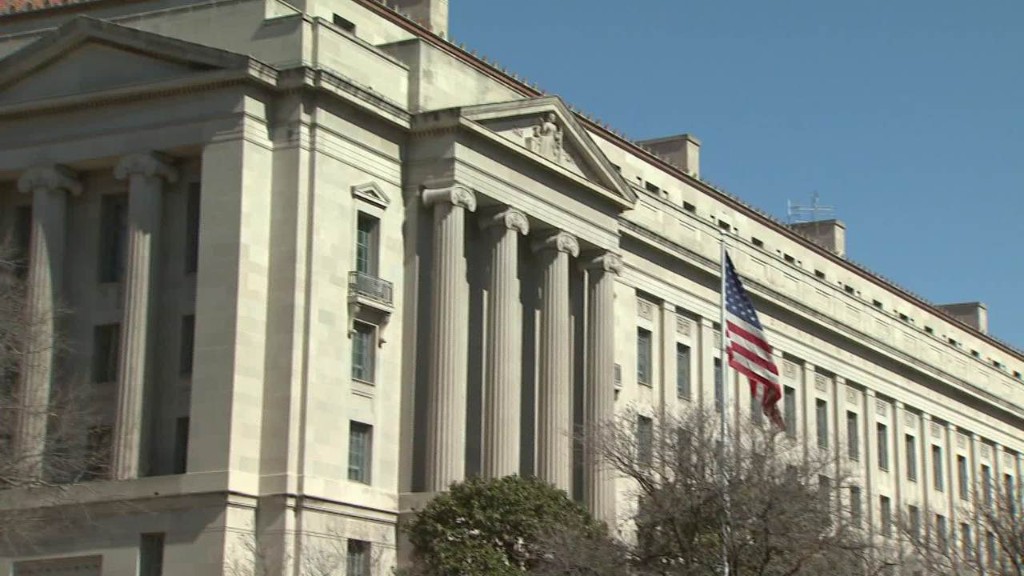
Tech companies are getting better at protecting our data from government spying, according to a report published this week.
The Electronic Frontier Foundation examined the privacy policies of 24 popular websites, apps, and Internet service providers in the United States. It found that the vast majority -- 21 of the 24 -- have publicly opposed policies which would force them to build a "back door" into their software that would enable the government to conduct surveillance.
AT&T (T), Reddit and Verizon (VZ) have stayed silent on the subject.
In order to combat crime, the FBI, for example, wants to be able to get into every American's cell phone to see pictures, messages and phone calls.
Adobe (ADBE), Apple (AAPL), Cisco (CSCO), Dropbox, Facebook (FB), Google (GOOGL), Microsoft (MSFT), Twitter and Yahoo (YHOO) were among the companies who signed a joint letter to President Obama in May, urging him to reject such proposals. Creating these loopholes, they argued, would weaken the security of their products, making it easier for other entities to attack their systems.
These firms also had high scores on the study for being open and clear about how often and when the government demands data. Many even publish their own reports on a regular basis. Twitter (TWTR), for instance, has an interactive map which shows where requests are coming from over a six-month period.
"We are pleased to see major tech companies competing on privacy and user rights," the EFF report concludes. "While we're only able to judge a small selection of the tech industry, we believe this is emblematic of a broader shift."
The public's attention has been focused on government surveillance more and more over the past few years, especially when the NSA's mass monitoring programs were revealed to the world by the whistleblower Edward Snowden.
The authors of EFF's report believe technology companies have the ability to resist certain types of government requests, so they are encouraging more communication between companies and users. As a result, users can push back on lawmakers to change data privacy laws.
"While our daily lives have upgraded to the 21st century, the law hasn't kept pace," the authors write. "In handing our data to these companies, we've handed them a huge responsibility to do what they can to stand up for privacy."
While most tech giants have started to publicly disclose information about government data requests, give users notice when these requests happen, and require search warrants before handing over user consent, some still lag behind. Most notably -- AT&T, Verizon, and Facebook-owned WhatsApp.
This was the first time WhatsApp has been evaluated. AT&T and Verizon have fared better on the reports in prior years. The EFF updates the criteria for its study to raise the bar because "users [now] expect more."
All three companies declined to comment.

